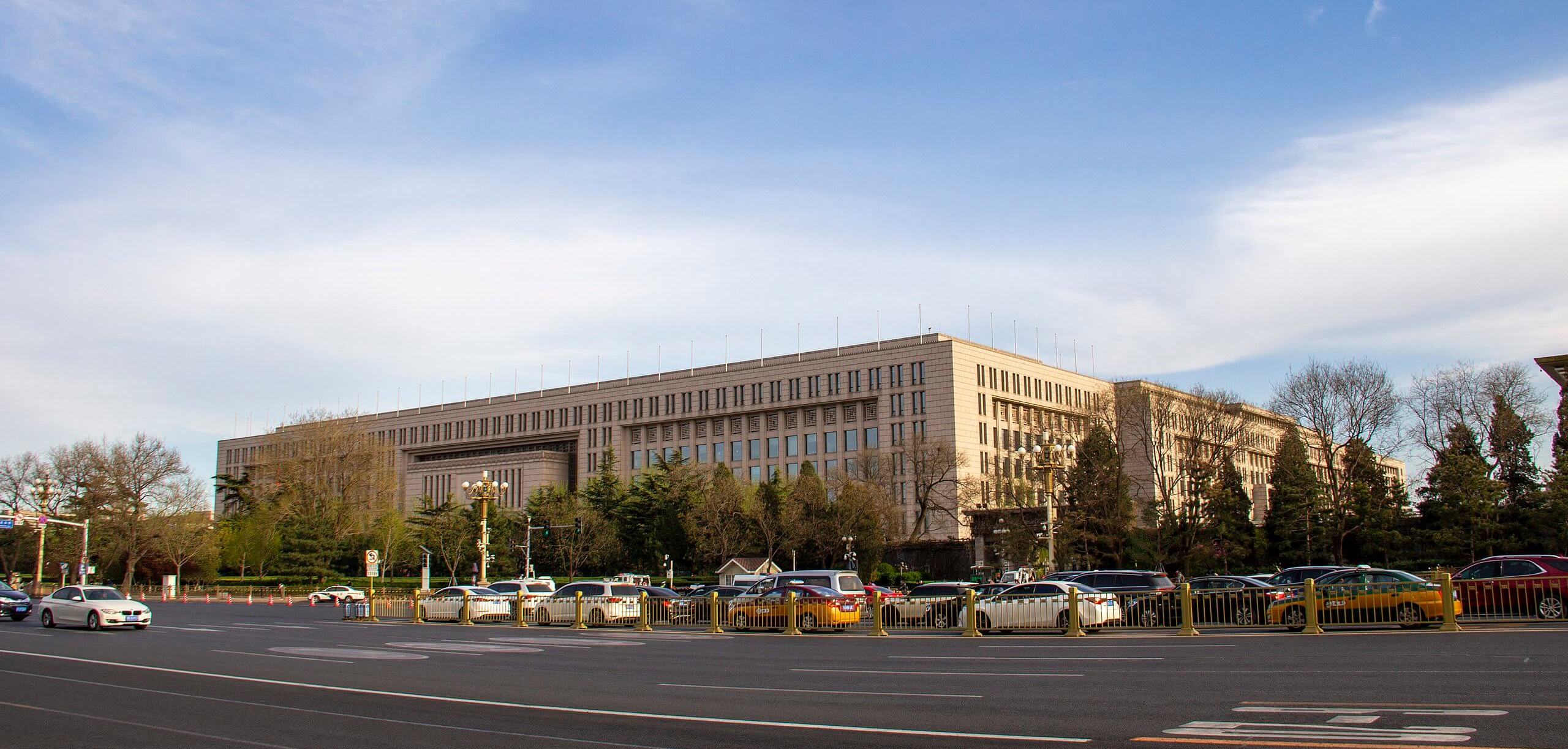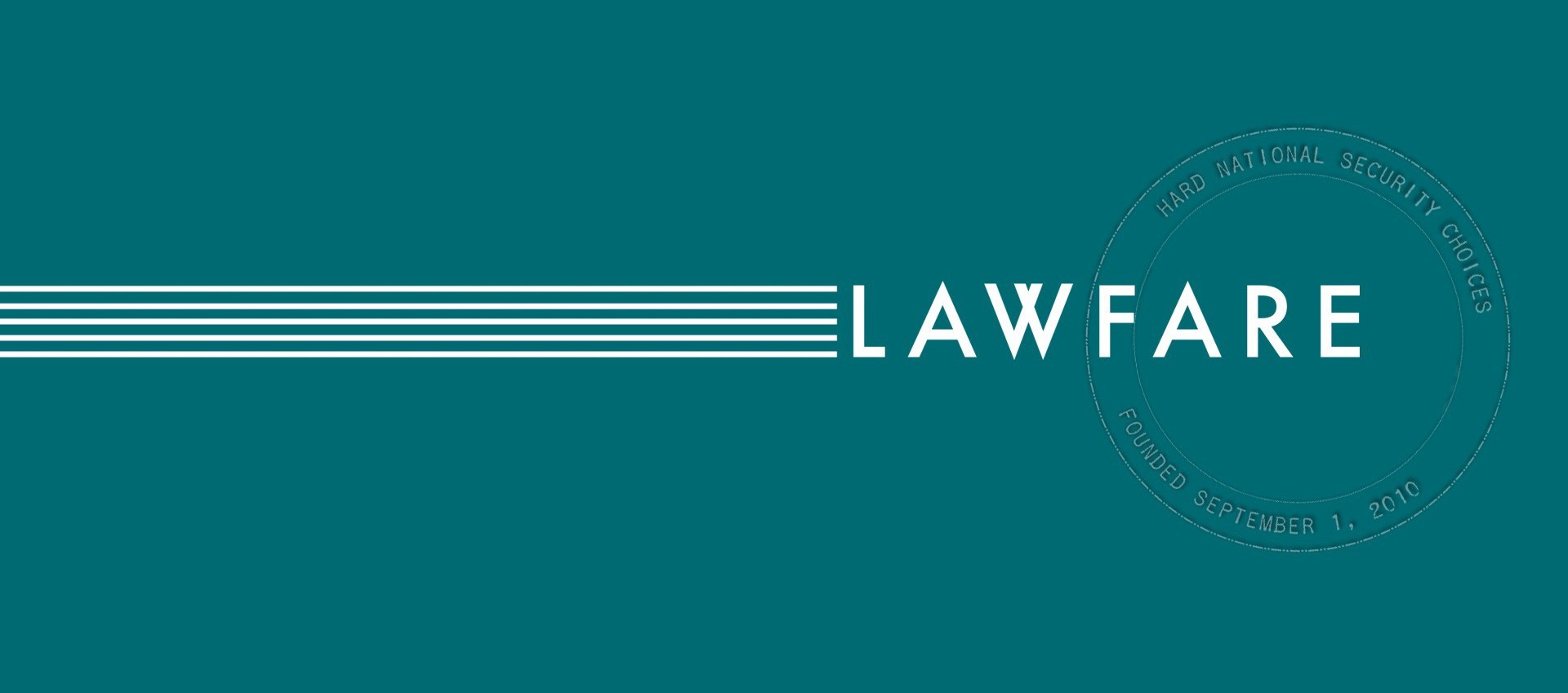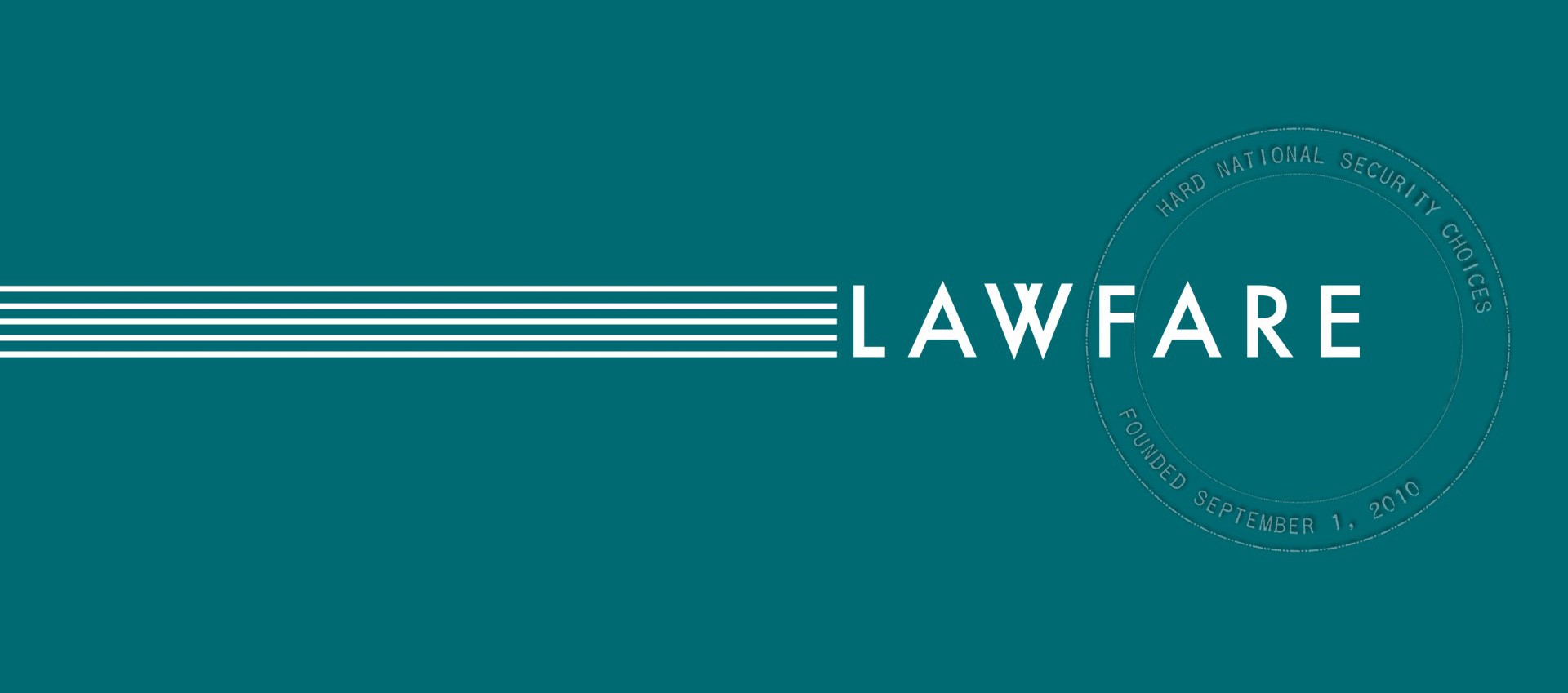Readings: An International Legal Framework for Surveillance, a New Article by Ashley Deeks
Lawfare's own Ashley Deeks (University of Virginia School of Law) has released a new article, "An International Legal Framework for Surveillance," available on SSRN and forthcoming in the Virginia Journal of International Law (Vol. 55, 2015). The article unsurprisingly has been receiving considerable attention since its release on SSRN, and I wanted to be sure that Lawfare's community (beyond the academics who stay abreast of SSRN) had an opportunity to hear about it as well.
Published by The Lawfare Institute
in Cooperation With

Lawfare's own Ashley Deeks (University of Virginia School of Law) has released a new article, "An International Legal Framework for Surveillance," available on SSRN and forthcoming in the Virginia Journal of International Law (Vol. 55, 2015). The article unsurprisingly has been receiving considerable attention since its release on SSRN, and I wanted to be sure that Lawfare's community (beyond the academics who stay abreast of SSRN) had an opportunity to hear about it as well. I'll defer saying more about it so that Ashley can present the article if she likes--except to say that this is an impressive, timely attempt to synthesize an international framework for surveillance issues. Here is the SSRN abstract:
Edward Snowden’s leaks laid bare the scope and breadth of the electronic surveillance that the U.S. National Security Agency and its foreign counterparts conduct. Suddenly, foreign surveillance is understood as personal and pervasive, capturing the communications not only of foreign leaders but also of private citizens. Yet to the chagrin of many state leaders, academics, and foreign citizens, international law has had little to say about foreign surveillance. Until recently, no court, treaty body, or government had suggested that international law, including basic privacy protections in human rights treaties, applied to purely foreign intelligence collection. This is now changing: several U.N. bodies, judicial tribunals, U.S. corporations, and victims of foreign surveillance are pressuring states to bring that surveillance under tighter legal control.This article tackles three key, interrelated puzzles associated with this sudden transformation. First, it explores why international law has had so little to say about how, when, and where governments may spy on other states’ nationals. Second, it draws on international relations theory to argue that the development of new international norms regarding surveillance is both likely and essential. Third, it identifies six process-driven norms that states can and should adopt to ensure meaningful privacy restrictions on international surveillance without unduly harming their legitimate national security interests. These norms, which include limits on the use of collected data, periodic reviews of surveillance authorizations, and active oversight by neutral bodies, will increase the transparency, accountability, and legitimacy of foreign surveillance.This procedural approach challenges the limited emerging scholarship on surveillance, which urges states to apply existing — but vague and contested — substantive human rights norms to complicated, clandestine practices. In identifying and valuing new, objectively verifiable, neutral norms, the article offers a more viable and timely solution to the perils of foreign surveillance. (PDF file: 72 pages, posted 1 September 2014.)
Kenneth Anderson is a professor at Washington College of Law, American University; a visiting fellow of the Hoover Institution; and a non-resident senior fellow of the Brookings Institution. He writes on international law, the laws of war, weapons and technology, and national security; his most recent book, with Benjamin Wittes, is "Speaking the Law: The Obama Administration's Addresses on National Security Law."





